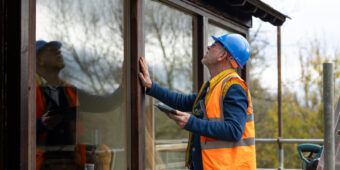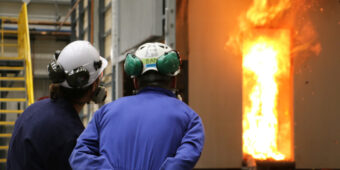Integrating migrant workers
06 Apr 2014, Business Tips, Prove Your Know How

With building activity gathering pace across the country, migrant workers are becoming increasingly important to New Zealand’s construction sector. It’s important for both employees and co-workers to help them adapt to our country’s workplace culture and procedures.
There is no doubt that migrant workers help fill labour and skill shortages, but it can take time for businesses to maximise the skills they bring. Judi Altinkaya, Immigration New Zealand’s National Manager for Settlement, says employers can benefit from some simple tips that can make all the difference to settling and retaining migrants in their workplaces.
“Being well-prepared for migrant workers, and their families, will help employers get the best value from them as soon as they arrive. How quickly and how well they settle into your workplace can determine how quickly that translates to your bottom line,” says Ms Altinkaya.
“We’ve talked extensively to people in the construction sector over the last year or so and what we’ve found is that employing migrants can be quite different from employing New Zealanders. Employers in the sector have found their new migrant workers may need some extra support, particularly when they first arrive in the country – even when the workers are from cultures similar to New Zealand’s. We’ve found that employers themselves also need some support in understanding their new migrant workers.”
Ms Altinkaya’s team has used the information they gathered from employers and migrant workers to put together two helpful guides.
“Being well-prepared for migrant workers, and their families, will help employers get the best value from them as soon as they arrive
Are You Employing Migrant Construction Workers?
This guide is for construction sector employers, and contains practical tips and information to help employers better understand and support their migrant workers.
Working in the New Zealand Construction Industry
This guide is for migrant workers, and contains visa information, New Zealand health and safety legislation and tips to better understand our workplace culture.
What can you do to prepare for your migrant workers’ arrival?
Ms Altinkaya says the amount of knowledge a migrant worker knows about New Zealand before they arrive can make a big difference in how quickly they are able to settle in to work and their new community.
“Our guide for employers describes and recommends providing migrant workers with a ‘Welcome Kit’ before they leave their home country,” says Ms Altinkaya.
The kit contains tips and practical information on a number of topics, such as our climate and clothing needs, driving requirements and food and commodity prices, as well as company information and expectations about the job.
“This is a great example of how a small investment can make all the difference to migrant workers and their families making a smooth transition to living and working in New Zealand,” says Ms Altinkaya.
“While it might seem like a lot of work to have to do before your migrant worker even arrives, it’s worth remembering that you’ll only have to put this information together once. The next time you employ a migrant, you’ll already be prepared.”
Helping migrant workers adapt more quickly
A company that provides a ‘Welcome Kit’ should also run a structured orientation programme for new migrant employees once they arrive. This will not only help your new employee become familiar with your workplace and work practices; it will also enable you to set out your expectations and should ensure that fewer mistakes are made.
Orientation programmes should include information about:
- Workers’ roles and responsibilities.
- Your expectations about employees’ work.
- Workers’ employment rights and obligations.
- Health, safety and hazards.
- Language and cultural difference.
It’s good to prepare yourself for new migrant workers as well, and the guide gives helpful information about the way your migrant workers may best be managed.
“For example,” says Ms Altinkaya, “some migrants will say ‘yes, yes, yes’ and then do the exact opposite of what you have asked them to do. This is frustrating, but once you understand the problem, you can easily work in a different way. Some migrants might find simple written instructions easier to follow.”
You can also pair your migrant worker with a ‘buddy’ – someone who knows what to do and can work alongside them as they go along.
It is crucial to ensure that your new migrant worker can safely operate equipment, including vehicles and machinery.
Speaking like a ‘New Zulander’
Ms Altinkaya says an important difference for employers and co-workers to keep in mind is when a new migrant worker comes on board, they may not be familiar with a lot of the language Kiwis use – slang and more informal terms – and even the names of equipment and machinery that are different.
“Migrants may have learned very formal English. While we take for granted that people will understand what things like smoko, Gib and ute are, these words will mean nothing to some migrant workers. Employers and co-workers will also need to be patient as people get used to our Kiwi accent – after all, Kiwi English is one of the least heard versions of English in the world, so migrants take a while to ‘tune in’ to us!”
Management style
It’s not only our words and accent that may cause misunderstandings. Kiwi workplaces tend to be a lot more informal than those many migrants are used to, and management styles can also differ.
“Depending on where your migrant worker is from, they may be used to being told exactly what to do, or they may not speak up unless asked directly – both concepts that are foreign to most Kiwi workers! Employers and co-workers can head many issues off at the pass by taking the time to find out about the culture in the migrant’s home country and what management style they are used to in the workplace.”
More Information
For more information on this and on what more you can do to help migrant workers settle in to your workplace, have a look at Are You Employing Migrant Construction Workers?
It’s available on Immigration New Zealand’s Settlement Support website: www.ssnz.govt.nz/working-in-new-zealand/construction/.
Next month we’ll go into more detail about ways to make migrant workers perform to the best of their ability on your worksite.
Register to earn LBP Points Sign in



